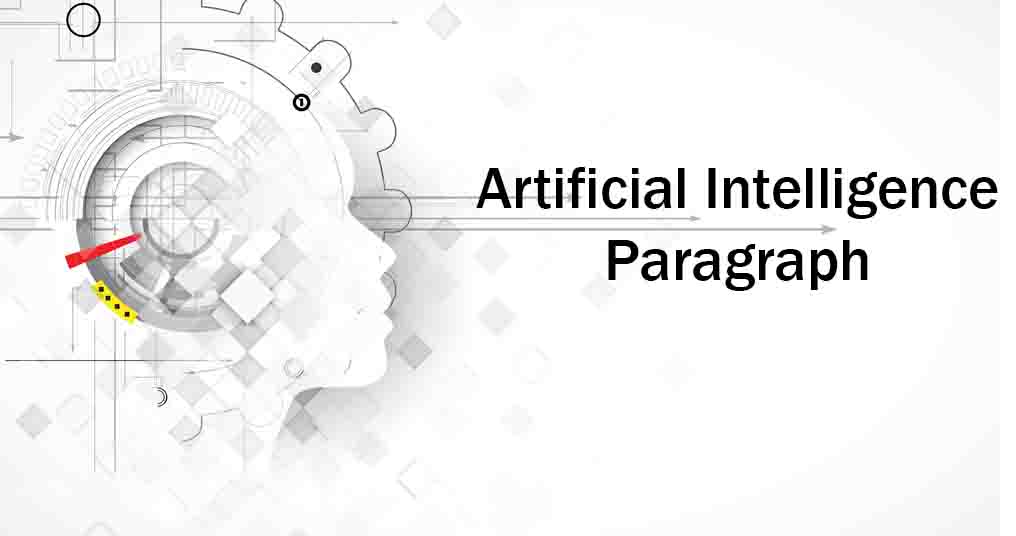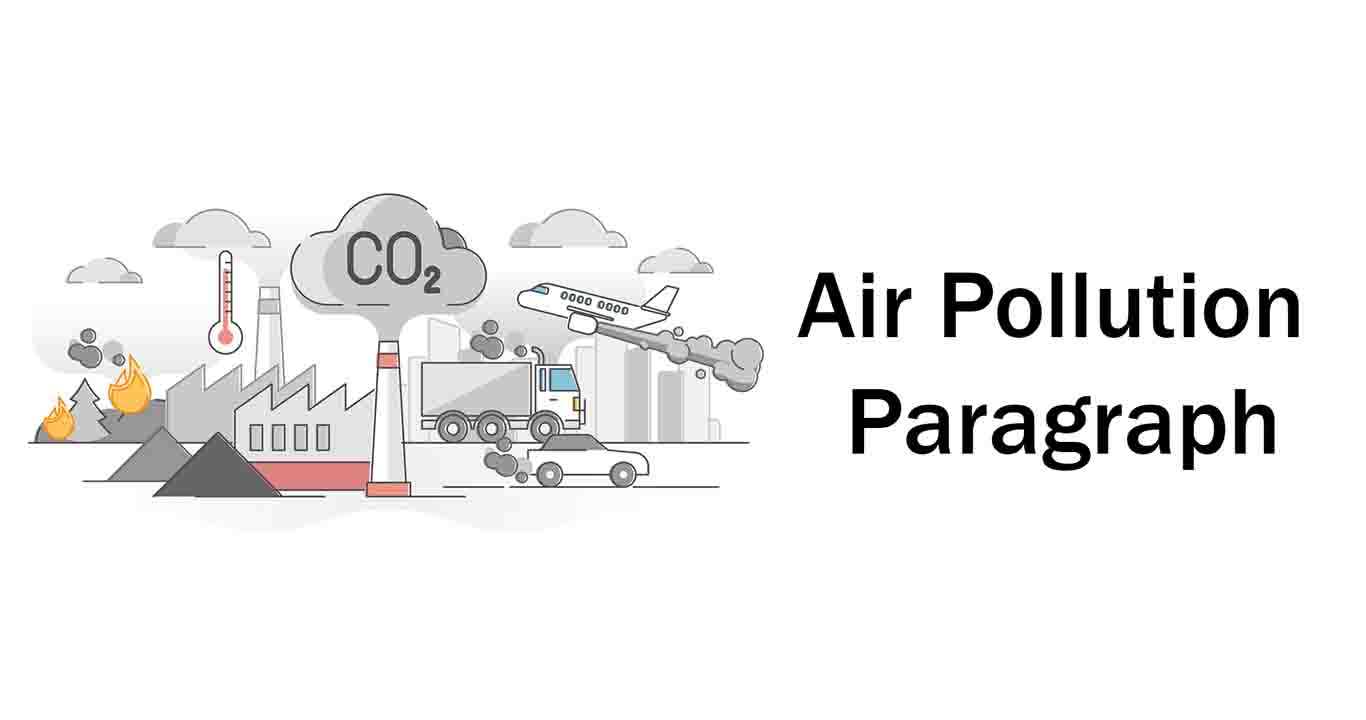Artificial Intelligence Paragraph in 300, 250, 200, 150 and 100 words

Artificial Intelligence Paragraph: Understanding Its Impact and Future
Artificial Intelligence (AI) is transforming our world, reshaping industries, economies, and even everyday experiences. AI involves the creation of computer systems that can perform tasks requiring human intelligence, such as decision-making, language translation, and visual recognition. As this technology advances, AI is finding applications in various sectors, from healthcare and finance to autonomous vehicles and customer service.
Artificial Intelligence Paragraph in 300 Words
Artificial Intelligence (AI) is a branch of computer science that focuses on creating machines capable of performing tasks that typically require human intelligence. These tasks include visual perception, speech recognition, decision-making, and natural language processing. AI systems leverage algorithms, data, and machine learning to continuously improve their performance. In sectors like healthcare, AI is helping doctors by analyzing medical data to diagnose diseases with accuracy. In finance, AI algorithms predict market trends and detect fraud, while in manufacturing, AI optimizes production lines and supply chains.
While AI holds tremendous potential, it also raises ethical and societal concerns. For instance, the automation of jobs could lead to job displacement, particularly in industries such as manufacturing and customer service. Additionally, there are concerns about AI perpetuating biases within algorithms, which could result in discrimination. To address these challenges, it’s crucial to develop ethical guidelines and regulations that ensure AI is used responsibly.
In conclusion, Artificial Intelligence is a powerful tool that can revolutionize many industries. However, as we continue to develop and deploy AI systems, it is essential to consider their social and ethical implications to ensure they are used for the greater good.
Artificial Intelligence Paragraph in 250 Words
Artificial Intelligence (AI) refers to the development of computer systems capable of performing tasks that usually require human intelligence. From image recognition to decision-making, AI systems are increasingly integrated into industries such as healthcare, finance, and manufacturing. For example, AI-powered tools are helping doctors diagnose diseases more accurately, while financial institutions use AI to analyze market trends and detect fraud.
AI’s ability to process vast amounts of data quickly and accurately makes it an invaluable asset. However, the rise of AI also brings significant challenges. One major concern is job displacement, as automation powered by AI could replace many human workers in various fields. Another concern is the potential for bias in AI algorithms, which could lead to unfair outcomes in areas such as hiring and law enforcement.
To mitigate these risks, it is essential to establish ethical guidelines and regulations for the development and use of AI. Transparency, accountability, and fairness must be prioritized to ensure that AI technologies are developed in a responsible manner.
In summary, this Artificial Intelligence Paragraph highlights the importance of balancing the advantages of AI with its ethical and social implications. While AI has the potential to revolutionize industries and improve quality of life, it is critical to address the challenges it presents.
Artificial Intelligence Paragraph in 200 Words
Artificial Intelligence (AI) refers to the creation of computer systems that can perform tasks that typically require human intelligence, such as problem-solving, decision-making, and language translation. AI uses advanced algorithms and machine learning to process data and make intelligent decisions. Its applications are widespread, from healthcare and finance to autonomous vehicles and customer service.
In healthcare, AI is being used to assist in diagnosis and treatment planning. In finance, AI analyzes financial data to detect fraud and predict market trends. In customer service, AI-powered chatbots are improving customer interactions by providing real-time assistance.
Despite its numerous benefits, AI also raises concerns. There is a risk of job displacement as automation takes over human tasks. Additionally, AI systems may inherit biases present in the data they are trained on, leading to unfair outcomes in various industries.
To ensure responsible development, it is essential to establish clear ethical guidelines for AI, focusing on fairness, transparency, and accountability. AI has the potential to improve many aspects of life, but it must be approached with caution to minimize any adverse effects.
Artificial Intelligence Paragraph in 150 Words
Artificial Intelligence (AI) is the creation of systems that can perform tasks traditionally requiring human intelligence. AI uses machine learning and advanced algorithms to process data and make decisions. Its applications span multiple industries, including healthcare, finance, and autonomous vehicles. AI can assist in diagnosing diseases, detecting fraud, and enhancing customer service experiences.
However, the rise of AI also brings challenges, such as job displacement and algorithmic bias. Automation in industries could result in workers losing their jobs, and AI systems may unintentionally perpetuate existing biases in decision-making.
To address these issues, developers and policymakers must prioritize ethical guidelines, ensuring that AI technologies are used responsibly. Ensuring fairness, transparency, and accountability will help maximize the benefits of AI while minimizing risks.
Artificial Intelligence Paragraph in 100 Words
Artificial Intelligence (AI) refers to creating machines that perform tasks requiring human intelligence, such as decision-making, speech recognition, and language translation. AI systems use machine learning to analyze data and improve their performance. Applications of AI range from healthcare and finance to autonomous vehicles.
While AI holds great promise, it also raises concerns like job displacement and biases in algorithms. To ensure responsible development, it’s important to create ethical guidelines that focus on fairness, transparency, and accountability.
Why is Artificial Intelligence Important?
The importance of Artificial Intelligence lies in its ability to revolutionize industries, improve efficiency, and provide solutions to complex problems. AI enhances decision-making, reduces human error, and can perform tasks more quickly and accurately than humans. As AI continues to evolve, it will become even more integral to sectors such as healthcare, education, and transportation, offering new possibilities for innovation and growth.
Conclusion
In summary, Artificial Intelligence offers a comprehensive overview of AI’s capabilities, applications, benefits, and ethical concerns. While AI holds immense potential to transform industries and improve daily life, its development must be approached with caution. By addressing the ethical implications of AI, including job displacement, bias, and privacy concerns, we can ensure that AI technologies are used for the greater good.
Key Points for Artificial Intelligence Paragraph
Q: What is artificial intelligence (AI)?
Ans: Artificial intelligence (AI) is a field of computer science and engineering that focuses on the development of intelligent machines that can perform tasks typically requiring human intelligence, such as visual perception, speech recognition, decision-making, and language translation.
Q: What are the different types of AI?
Ans: There are different types of AI, including:
1. Reactive machines: These machines can only react to specific situations, and they do not have memory or the ability to use past experiences to inform future actions.
2. Limited memory machines: These machines can use past experiences to inform future decisions, but they do not have a full history of experiences to draw from.
3. Theory of mind machines: These machines can understand emotions, beliefs, and desires in themselves and others, which can help them to predict behavior and make better decisions.
4. Self-aware machines: These machines have a sense of self-awareness and consciousness, which allows them to think and reason like humans.
Q: What is machine learning?
Ans: Machine learning is a subset of AI that involves training algorithms to improve their accuracy over time by feeding them data and allowing them to learn and adapt on their own. Machine learning algorithms can be supervised (learning from labeled data), unsupervised (learning from unlabeled data), or semi-supervised (a combination of both).
Q: What are some applications of AI?
Ans: AI has numerous applications across industries and fields, including image and speech recognition, natural language processing, autonomous vehicles, robotics, predictive analytics, fraud detection, and many more.
Q: What are some ethical concerns around AI?
Ans: Ethical concerns around AI include job displacement, bias and fairness in algorithmic decision-making, privacy and security, and the potential misuse of AI for malicious purposes. It is essential to prioritize ethical considerations and invest in the development of responsible AI systems.









